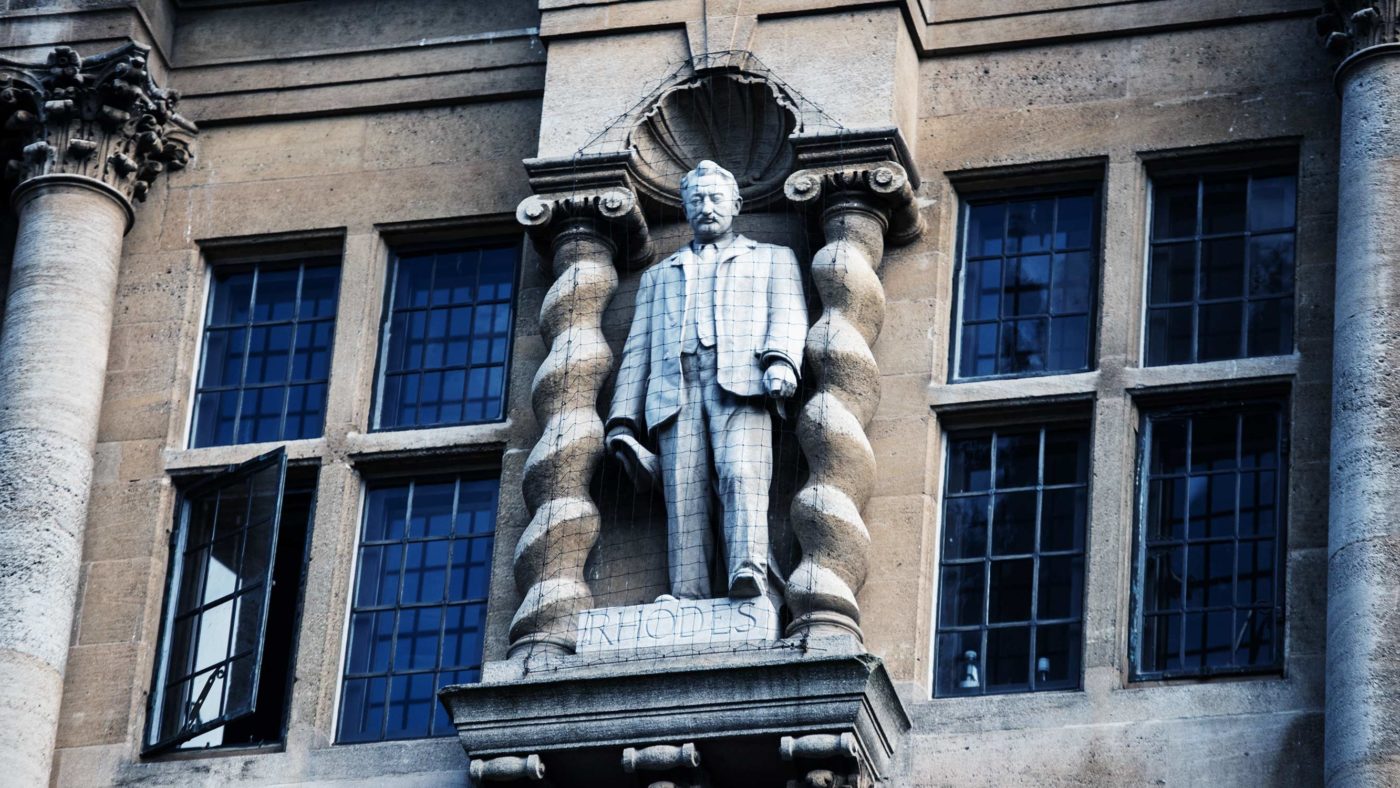It’s been a funny old week in what passes for Britain’s culture wars. It began last Sunday with a small number of England fans booing as our football team took the knee ahead of a game in Middlesbrough.
Cue the likes of Nigel Farage complaining about the influence of “Marxist BLM”, and a spate of gags about Harry Kane and co being influenced by Das Kapital. Suffice to say, anyone who thinks England players taking the knee is about far-left ideology is seriously overestimating the range of interests of the average Premier League footballer.
A few days later, another row – this time about a bunch of Oxford graduate students voting to take down a “colonial” picture of the Queen from their college common room. So far, so puerile.
Less trivial was the threat from more than 150 Oxford dons to stop teaching Oriel College students because the college has still not removed a statue of Cecil Rhodes.
Now, it’s easy to mock this kind of inane activism. Tom Harris wrote us an enjoyably withering critique of these “courageous descendants of the Tolpuddle martyrs”, while others have had fun pointing out that some of the dons’ own teaching posts relied on the legacies of noted colonialists.
But, as ridiculous as it all sounds, the Oriel boycott is quite a serious matter. Most obviously, for the students whose already Covid-shattered education risks being disrupted again over something they had no involvement in.
And to what end? Is it really the case that the Rhodes statue is such a powerful symbol of oppression that removing it right now is of paramount importance? Professor Danny Dorling, one of the better known boycotters, claims that “having your university associated with a statue of a racist is deeply upsetting and puts a smear on the whole university” (italics mine).
Where that argument falls down is that it isn’t true. Virtually no one, in the UK or abroad, thinks that Oxford’s reputation has been undermined by the presence of a statue that has been there for decades. (If you want to find a British university truly damaging its own reputation, perhaps look at certain Cambridge colleges’ warm embrace of the Chinese regime.
The claim of deep upset is also curious, given that before the Rhodes Must Fall campaign got going few people even knew there was a Rhodes statue at Oriel. As I wrote recently, symbols can be important and have power, but that power usually derives from some kind of collective view of the thing in question, not a small minority of hyper-aware individuals insisting the rest of us take sides on something almost no one cares about.
We can’t simply ignore it though, because the number of staff involved suggests this kind of half-baked thinking is more deeply ingrained than some of us had feared – and ingrained in people selected for intellectual excellence, whose university produces so many of our future political and cultural leaders.
We’ve had a stark warning from across the pond about the way elite universities can foment the most divisive, counter-productive identity politics, and no one looking at the state of America’s cultural and political debate would think that’s something we want to start recreating here.
The good news is that both Oriel and Oxford’s vice-chancellor have set their stall out clearly against the self-indulgent dons. Here’s hoping other institutions heed their example.
Click here to subscribe to our daily briefing – the best pieces from CapX and across the web.
CapX depends on the generosity of its readers. If you value what we do, please consider making a donation.


